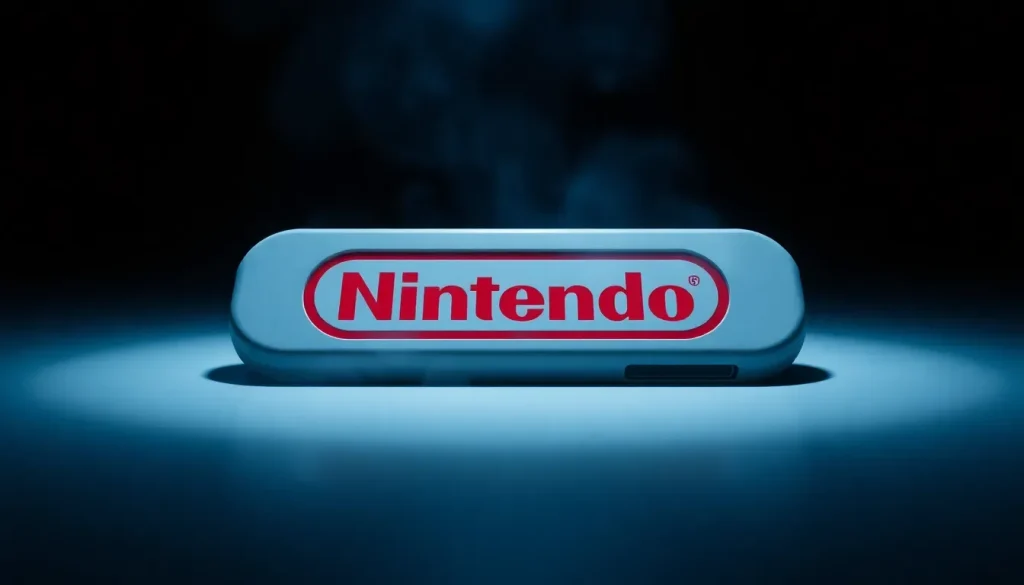Nintendo hacked by Crimson Collective, claims theft of documents and files

Nintendo, the renowned Japanese gaming company, has been at the forefront of the gaming industry for decades, known for iconic consoles like the NES, Game Boy, Wii, and the recent Switch 2. With a plethora of beloved franchises such as Mario, The Legend of Zelda, and Animal Crossing, it’s no surprise that the recent news of a security breach involving Nintendo has raised eyebrows and concerns. Hackers claiming to be part of the Crimson Collective have allegedly compromised Nintendo's systems, leaking a significant amount of confidential data.
The seriousness of this situation cannot be understated. As a company that fiercely protects its intellectual property, Nintendo has a history of taking legal action against infringements. From lawsuits regarding piracy to targeting emulators, the company has consistently defended its products and brand. This incident not only threatens their proprietary information but also raises questions about the security measures in place to protect such valuable assets.
Nintendo reportedly hacked by Crimson Collective, the same group behind the Red Hat leak
The breach reportedly attributed to Crimson Collective has sent shockwaves through the gaming community, especially considering the group's recent history of hacking. Just prior to targeting Nintendo, they successfully infiltrated Red Hat, extracting over 500 GB of sensitive data from GitHub. This pattern suggests a coordinated effort aimed at exposing vulnerabilities in major tech companies.
What's particularly alarming is the lack of a prompt response from Nintendo regarding the breach. Typically, the company is swift to address any potential threats to its intellectual property. The information on this hack surfaced through Hackmanac, a platform that monitors and reports on cyberattacks, lending credibility to the claims. The presence of numerous leaked folders raises concerns over the extent of the data compromised.
Among the leaked files, there are indications of various components associated with Nintendo's operational infrastructure. Noteworthy folders include:
- RSS log: Contains XML data potentially linked to website management.
- Config-bucket: Possibly connected to Amazon AWS S3, indicating cloud storage usage.
- DataDog-forwarderstack: Confirms the use of AWS functionalities.
- Nintendo-topics-infra: Features folders with asset tests for games and admin resources.
The leaked folders provide a glimpse into Nintendo's internal workings, with several directories highlighting various aspects of game development. One such directory, nintendo-topics-ncom, includes references to assets and previews, suggesting ongoing and upcoming projects. These folders might contain sensitive information that could impact not only game development but also Nintendo's market strategies.
Within the leaked materials, folders labeled -production indicate stages of development for specific titles. These could potentially include:
- Development phase: Early stages where concepts and mechanics are tested.
- Staging: The critical phase where final tests are conducted before a game's official release.
- Assets and previews: Visual and gameplay elements for marketing and testing purposes.
Understanding these stages is crucial for grasping how a company like Nintendo operates behind the scenes. The -staging folder, in particular, signifies the last testing phase before public launch, emphasizing the importance of quality assurance in the gaming industry.
Potential implications of the breach for Nintendo and its fans
The ramifications of this hack could be extensive. For Nintendo, the immediate concern is the integrity of their proprietary information. The leaked data could lead to:
- Intellectual property theft: Competitors might exploit the leaked information for their own gain.
- Market strategies compromised: Any details regarding upcoming launches could give rivals an unfair advantage.
- Loss of consumer trust: Fans may feel uneasy about the security of their personal data connected to Nintendo accounts.
Moreover, if the hackers decide to demand ransom in exchange for not releasing more sensitive data, it could put Nintendo in a difficult position. The company has historically stood firm against extortion, but the stakes have never been higher.
Future developments: Will Nintendo respond?
As the dust settles from this incident, all eyes are on Nintendo to see how they will handle the aftermath. Given their track record, it is expected that they will eventually issue a statement regarding the breach and the steps they plan to take moving forward. This could include:
- Enhancing security protocols: Implementing more rigorous cybersecurity measures to prevent future incidents.
- Legal action: Pursuing those responsible for the breach, potentially leading to significant legal repercussions.
- Consumer communication: Providing transparency to users about how their data is being protected.
The gaming community is abuzz with speculation about the impact of this breach. As new information continues to emerge, it is crucial for fans and industry insiders alike to stay informed about developments surrounding Nintendo's response to this significant security threat.




Leave a Reply